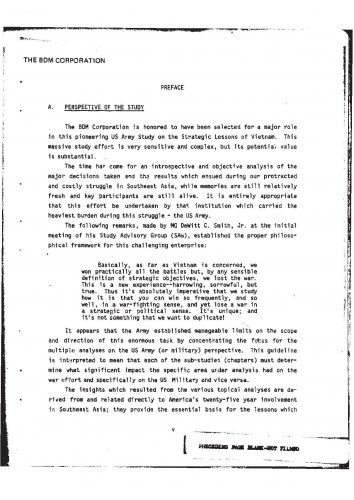TaiidanTomcat said:
There seems to be some "lost in translation" issues here:
Military men are not "Warriors". Modern military people have discipline and use their intelligence. Warriors don't, they rely on their physical prowess to carry the day. Which would you prefer to think of your military forces as? A rabble or a well disciplined and intelligently directed force?
Warrior is a commonly used phrase to denote fighting men even in modern western armed forces. "warrior ethos" is not about a spear and loin cloth.
No it's not about "spear-and-loin-cloth" but that's a recent "meaning" more than anything else. I'm probably mis-remembering I'm sure but I think it was a Roman General that observed something to the effect that 10 soldiers will beat 100 warriors every time, but one solider will always fall to one warrior.
Warrior is a "mindset" as well as a cultural definition, just as soldier is. HOW these labels are applied varies greatly across cultures and time.
A warrior is "one who is engaged aggressively or energetically in an activity, cause or conflict;"
http://www.hill.af.mil/news/story.asp?id=123180429
Funny you should pick that one, I was reading it again for another reason a few weeks ago. 20 years ago someone in the military got in trouble for calling himself a "warrior" because, (as it was explained by a senior-NCO) we were "soldiers" not warriors. The above "quote" was paraphrased from that lecture. Back then the "Warrior-Ethos" was the "Soldiers-Creed" instead but the overall "meaning" was and remains the same.
I think OBBs original point is that a lot of militaries don't really care about minimizing casualties. (in some cases on either side) in fact some not only hope to win but maximize casualties on the opponents side regardless of their combatant status.
Probably correct but OBB is clearly trying to boil the whole discussion nice "simple" terms and there he's wrong. Militaries don't normally CARE about anything but winning. That's their task, their job, its what they do.
However, having said that militaries in general over the ages have had to also take into consideration longer term and more comprehensive near-term "goals" as well or they do not "win" in the end. Most militaries are "constrained" by political and other considerations by the "government" they are beholden too. In many cases this will set "limits" on the acceptance of casualties especially among non-combatants. Other times it will not. To a military the "acceptable" number of casualties on YOUR side is the minimum needed to get the job done, (preferably none) meanwhile the acceptable casualties for the OTHER side is the minimum needed to cause them to cease to be an effective fighting force. There are variances though, a lot of them in fact.
If the military "need" is to destroy the infrastructure that supports the enemy fighting force then non-combatant casualties are acceptable, pretty much inevitable actually. If the enemy forces are using their own, or other non-combantants as "shields" then military needs would accept the non-combatants as acceptable casualties, however historically and in modern times it has been found that by TRYING to restrain such casualties has benificial side effects as long as it does not totally compromise military effectivness. (Effects such as finding car-bombers taped to light poles {naked} with duct tape, civilians wrestling and beating snipers, etc)
Hiroshima and Nagasaki are two examples of military need to convince the enemy that the only alternative to surrender is total destruction. Historically total "destruction" has been used to either permanently remove an enemy from ever being a threat again, or in some cases to ensure an enemies surrender or capitulation.
Historically a great deal of what is "military necessity" and what is not has changed along with military doctrine, technology, and culture. Today it is VERY easy to "destroy" large segments of any military and/or non-combatant enemy if one has the political and cultural will to do so and the proper weapons. On the other hand restricting casualties both combantant and non-combatant has become much more difficult. Along with the fact that it is no longer politically acceptable to actually "conquer" or destroy nation-states has made the military definition of "winning" a lot more "flexible" than historically, there is the fact that few militaries are geared for such activities anymore. (It not being economically or politically sustainable to raise and maintain such military forces these days)
With that in mind modern military forces are loath to inflict large amounts of casualties on non-combatants since in all likely hood "winning" will end up being a political and not a military decision. Given that there will almost certainly not be enough military strength left "in-place" to effectivly garrision the post-war area there is both a need and a desire to have some "good-will" to build upon with the local population. Given the "fact" that continued enemy activity will be difficult at best to route out and destroy because of various factors the main military mission becomes trying to ensure that a least a large segment of the local population sees them not as "occupiers/conquerors" but at the very least as the "lesser" of two evils, and in the best case as "guardians" and protectors.
In the end the military has to and will "accept" whatever amount of casualties on both sides it take to "win" a conflict. The bottom line will always be trying to ensure the minimum amount necessary on YOUR side with little or no regard to the amount on the OTHER side.
Randy


